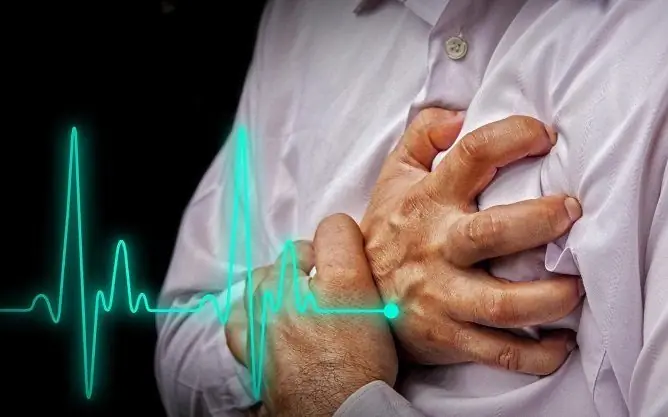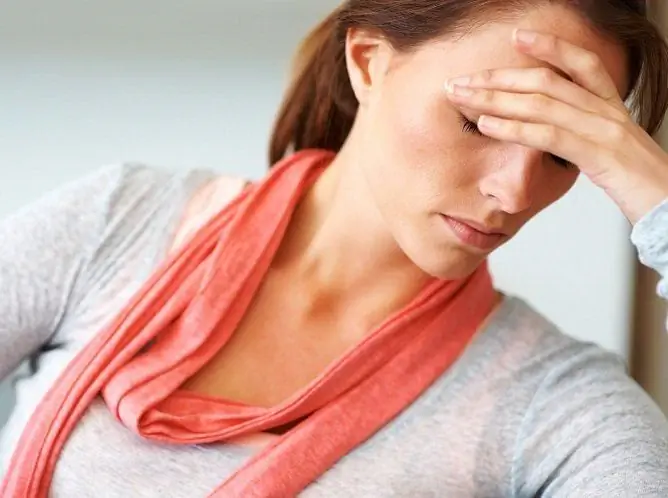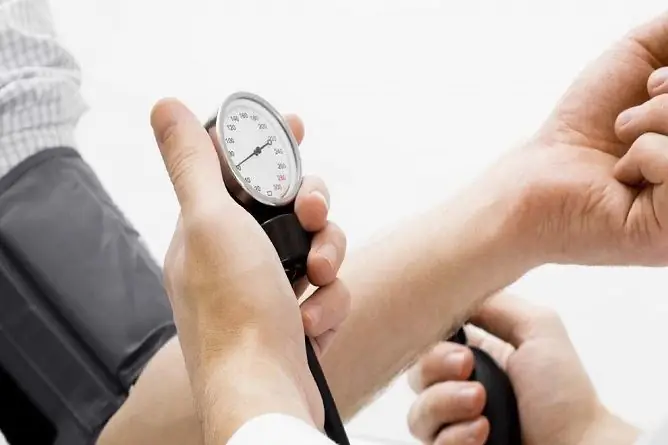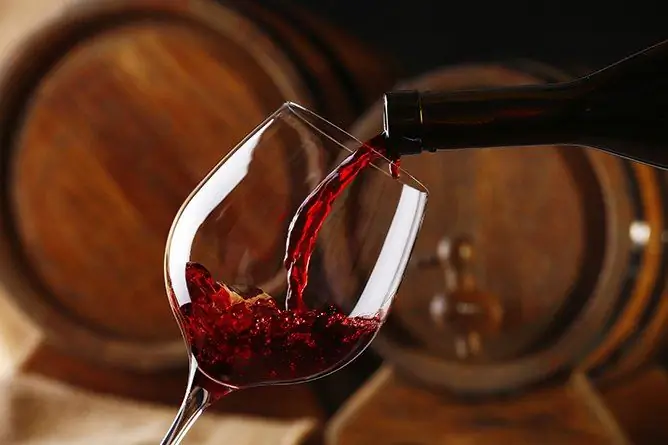- Author Rachel Wainwright wainwright@abchealthonline.com.
- Public 2023-12-15 07:39.
- Last modified 2025-11-02 20:14.
How to quickly raise your heart rate at home without increasing blood pressure
The content of the article:
- Why is it important to raise your pulse without raising your blood pressure
- How you can increase your heart rate at home
- Medicines - how to increase the pulse at normal pressure
- Video
The need to raise the pulse without increasing the pressure does not often arise, since the state of a slow pulse in itself at high or normal pressure is quite rare. High blood pressure is usually accompanied by a rapid pulse - an increased heart rate is a natural compensatory reaction of the heart to resistance overload, which necessarily occurs with high pressure. But sometimes the opposite reaction is observed, when the heart rate (HR) decreases, sometimes quite significantly. This condition is worse tolerated by the body, because blood circulation with rare contractions suffers noticeably. In addition, this may be one of the signs of functional disorders in the body that have arisen against the background of hypertension. It is serious enough to see a doctor without delay, and only afteras a dangerous pathology is excluded, you can try at home to quickly raise the pulse without increasing the pressure.
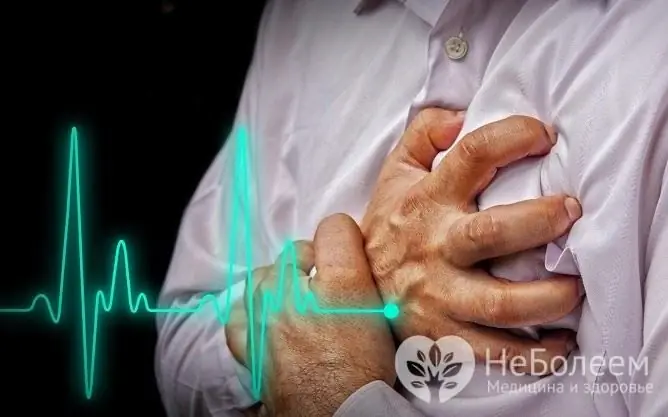
A low pulse with high blood pressure can be a sign of heart muscle damage.
Why is it important to raise your pulse without raising your blood pressure
Hypertension (a state of prolonged high blood pressure) is a common pathology that has many clinical forms and manifestations. Usually, hypertension is characterized by an increase in the frequency of heart beats - this is how the main organ of the circulatory system is unloaded, redistributes blood along the vascular bed and reduces pressure on its own walls. Thus, the body tries to compensate for the impaired circulation.
But much more specific, and at the same time dangerous, is the condition when the heart rate at high pressure is below normal. On average, the heart beats 60-70 times per minute, and if the number of beats per minute in a person is less than 50, then they speak of the presence of bradycardia.
There are many reasons for this condition, some of them are physiological and do not require treatment. But there are also dangerous ones: firstly, it can speak of decompensation and damage to the heart muscle. Secondly, it can be a sign of progressive cardiovascular failure associated with hypertension. Also, bradycardia can be associated with a previously acquired heart disease, whether it be blockade, cardiosclerosis, hypertrophy or dilatation of the heart chambers.
Do not underestimate this condition - not only do all organs receive less nutrition due to high blood pressure, but also the heart with bradycardia does not fully pump blood to meet all the needs of important organs. Consequently, these organs are damaged. This condition is manifested by the following symptoms:
- weakness, drowsiness;
- dizziness;
- nausea;
- feeling of uneven work of the heart;
- dyspnea;
- visual impairment;
- flies before the eyes;
- chest pain.
How you can increase your heart rate at home
If the state of bradycardia occurs rarely and is not accompanied by unpleasant symptoms, you can try to reduce the pressure and normalize the pulse with folk remedies without resorting to medications. To increase the effectiveness of these funds, you must also adjust your lifestyle and physical activity.
Exercise excellently increases the heart rate - walking, jogging, cycling is suitable. Regular exercise helps to increase the endurance of the heart muscle. In professional athletes, bradycardia is a normal condition - the heart is so adapted to high loads that it can be said to rest at rest. But bradycardia with hypertension is of a pathological nature.
It is known that the pulse rises in warmth, so hypothermia should be avoided, and to enhance heart activity, you can drink a hot drink, take a hot bath. To increase the heart rate, it is useful to actively massage the earlobes - this improves microcirculation and reflexively leads to an increase in heart rate.
Some spices raise the heart rate without affecting blood pressure. A pinch of cinnamon, cloves, nutmeg will diversify the taste of the dish and will help with bradycardia. Caraway seeds, mustard, hot peppers have similar properties (but you must be careful with hot spices, they can affect pressure).
Cocoa in small quantities is very useful and helps in the fight against bradycardia - you can easily make a delicious drink: pour cocoa powder with water or milk, boil and add sugar to taste. Instead of cocoa, you can take dark chocolate, a few slices of which are enough for an even and filled pulse.
Some herbal teas can help increase your heart rate. One of them is a decoction of yarrow. For cooking, you need to take two teaspoons of chopped yarrow herb and pour a glass of boiling water, then leave for 2-3 hours. When the infusion has cooled down and is filtered, it must be taken 4 times a day with a decrease in heart rate.
Mint tea acts in two directions - it has a relaxing, sedative effect on the body and the nervous system, while reducing pressure and normalizing the pulse. To do this, lemon juice is added to sweet mint tea. In this case, lemon also acts as a universal medicine against a rare pulse - you can eat it yourself, with sugar, drink its juice and add it to drinks. If you don't have diabetes, you can make a mixture of lemon zest, crushed nuts and honey, which is consumed in the morning and evening. Such a remedy invigorates and raises the pulse.
Often with bradycardia, mustard plasters are advised on the chest, approximately in the region of the heart (to the left of the sternum). Burning, warmth and irritation of the skin leads to increased innervation and the body's response is to increase the heart rate. The exposure time of the mustard plaster should not exceed 2 minutes.
The use of homemade tonic tinctures on fir cones or forest berries can be effective.

The best way to raise the heart rate in a healthy person is exercise.
Medicines - how to increase the pulse at normal pressure
It is not recommended to resort to treatment with pharmacological agents on your own; it is necessary to undergo a comprehensive examination by a cardiologist, who will prescribe treatment based on medical indications. Otherwise, it is possible to increase the pressure along with the pulse, which in conditions of hypertension will lead to a hypertensive crisis with potential sad consequences.
The following drugs are most commonly used in the clinic for bradycardia associated with hypertension:
- Toning tinctures are prescribed for patients with chronic bradycardia without organic pathology. These drugs give a surge of strength and energy, make the heartbeat faster and stronger, and improve blood circulation. These include tincture of ginseng, echinacea, eleutherococcus. The dose should be less than the average therapeutic dose indicated in the insert, otherwise the pressure may rise.
- Caffeine is a psychostimulant, the mechanism of its action is central, that is, the substance affects the brain, in particular, the medulla oblongata, where the vasomotor center is located. Its activation leads to an increase in heart rate, but the pressure can only increase indirectly. The use of Citramon or Kofitsil, or just a small cup of natural coffee can be effective.
- Drugs that improve cerebral circulation are nootropics that optimize brain metabolism, expand the lumen of cerebral vessels, and improve microcirculation in the thickness of tissues. These remedies help the main organ of the body to cope with oxygen deprivation without complications. The balance between the processes of activation and inhibition (activity of the sympathetic and parasympathetic nervous systems) brings the pulse back to normal. This is Piracetam, Cinnarizine, Phenotropil,
- Trace elements - magnesium and potassium preparations normalize the work of the cardiac conduction system, help with arrhythmias and bradycardia. These ions are necessary for good conduction of nerve impulses in the heart, contraction of muscle fibers (contained in the preparations Cardiomagnyl, Aspecard).
- Cardiotonics - are prescribed only for severe heart failure and are available with a prescription. These are funds that accumulate abundantly in the body, their effect lasts a long time, sometimes up to several days, so it is important to observe the dose and frequency of administration. These are Digoxin, Digitoxin, Dobutamine and others.
If the pressure rises along with the pulse after taking this or that drug, it is necessary to notify the attending physician about this, who will adjust the therapy.
Video
We offer for viewing a video on the topic of the article.

Nikita Gaidukov About the author
Education: 4th year student of the Faculty of Medicine No. 1, specializing in General Medicine, Vinnitsa National Medical University. N. I. Pirogov.
Work experience: Nurse of the cardiology department of the Tyachiv Regional Hospital No. 1, geneticist / molecular biologist in the Polymerase Chain Reaction Laboratory at VNMU named after N. I. Pirogov.
Found a mistake in the text? Select it and press Ctrl + Enter.

